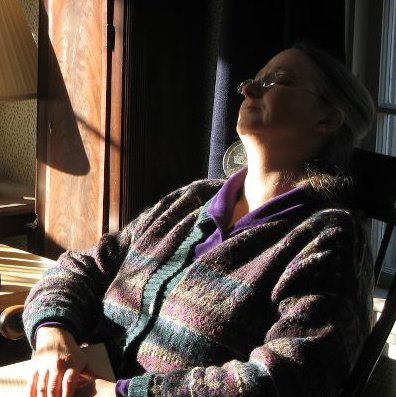This is my love letter to the servant-leaders of the world.
I see you. I see you there, working so hard.
 You have a gift, or a mission, or a vision. You have a knack for pulling people together, or you have reached down deep inside yourself and found something to serve in its place, because the need you see is so strong. And you have brought together a group: a service project, a spiritual community, a movement against injustice, and you are engaged down to your bones. You can sense the coming of the Beloved Community, and you are holding open the door, inviting in anyone who is willing to join you.
You have a gift, or a mission, or a vision. You have a knack for pulling people together, or you have reached down deep inside yourself and found something to serve in its place, because the need you see is so strong. And you have brought together a group: a service project, a spiritual community, a movement against injustice, and you are engaged down to your bones. You can sense the coming of the Beloved Community, and you are holding open the door, inviting in anyone who is willing to join you.
And then it happens. (It always happens.) Just as you feel the first faint flush of success, of forward momentum toward your goal, the infighting begins. (It always begins.)
And you feel despair. This is what I need you to know: do not despair.
We are always falling in and out of the Beloved Community; we find it for a span of heartbeats, and then it dissolves away in our hands. That doesn’t mean we’re doing it wrong.
Let me tell you a story. Let me tell you the story of my fortieth birthday, some years ago.
My husband and I were leading a small spiritual community at that time. It was warm. It was full of love. When we broke bread together, it was rich beyond words, and we were all friends. And the members were grateful for what we had done, my husband and I, in bringing this group into being, and they wanted to show their gratitude.
They decided to throw me a surprise party.
Not just any surprise party: a big, all-day affair, outside at the peak of summer, with picnicking and presents and friends from everywhere invited. There would be cake, games, long walks under the trees… It was to be a glorious day.
And then (of course) the fighting began. Two of my friends–the two most outgoing and charismatic of my friends–began to quarrel. They fought, of all things, over what idyllic outdoor spot would be the most appropriate for this lovely day of fun. The fight escalated, as these things do, growing more and more bitter until they were no longer on speaking terms, and I was called in to mediate.
Which spoiled the surprise, needless to say.
In the end, one of the two friends chose to boycott my party. She, and all her family, simply refused to attend. I think I was supposed to intervene because of that, add my voice to hers, and let her dictate the choice of place to the rest of the group. I didn’t. She was angriest at my other friend, but she was angry at me, too. It wasn’t very much fun… But it was very, very human.
This is what we are like, we humans…
And that’s why, sometimes, being a leader means being the one to say no. No, you’re not going to get your way; No, I will not join you in your anger; No, I will not allow you to tear down what we have built.
Being a leader, a real, true, servant-leader, whose commitment is to the Beloved Community often means being the one who sets the limits, holds the boundaries, manages all the precious resources of the group, including the mutual good will of that group. This is true whether the community rotates leadership on a schedule; elects leaders democratically; or is yours to lead because you are the only one who is able to take that role right now; because the group is still your infant, not yet weaned from your touch.
The servant-leader is the one who gets the not-so-enviable job of saying no. Not enviable… though there are those who will believe differently.
To someone who has never learned for themselves how to hold authority for the sake of the work at hand, everyone who holds authority of any kind looks like a dictator. Any use of authority, for any reason, looks like abuse to those who have never experienced ownership of their own authority, or come into a full acceptance of their own gifts. There are those who cannot lead and will not be led, and will respond all limits set on them personally as a personal attack.
And still, you must do it. When it serves the needs of the Beloved Community, you will usually have to set the limit, to create the boundary, to refuse and to deny and say no.
It’s not what we want to say. It’s not what brought us into leadership to begin with. We want, more than anything else, to say yes–to encourage the newcomer, nurture new gifts, open the door wide for everyone to enter. We want so badly to say yes, to share the positive vision that we have–the one that moves us forward. We didn’t sign up to say no.
And we know, unlike those who have never held the responsibility of leadership, that it hurts to say no: no to membership in a group; no to an enthusiastic proposal we can see does not serve the group; no to the person who lets their passion for justice translate into venom towards our allies.
Saying no is necessary, but here’s a truth: it hurts.
Maybe it hurts every single time. And being accused (as we will be) of being power-hungry or misguided or on an ego trip makes it hurt even more. But it is part of the job, and in truth, our love for the work will guide us, will give us the strength to say no when we need to.
Here’s what I want to say to you, my friends, my colleagues:
Stay the course.
Stick with it. Remember that those we gather around us come to us in all different stages of readiness for the work–whether it’s the work of social justice, or simply sharing a human or spiritual community together. Each crop of difficult, cranky, frustrating allies is learning for the first time what it means to put the work first. And no matter how many times we have worked this through with other newcomers, we are going to have to dig deep and find the patience to teach each individual cranky newcomer that working in community will involve learning to take no for an answer.
Each newcomer is learning patience for the first time. We are far from teaching it for the first time, however, and we will need to hold onto every scrap of our own patience in order to walk alongside them as they learn. And yet every newcomer deserves the same compassion as the first.
Being a servant-leader means remembering that–or at least, reminding ourselves of it firmly if we forget.
More than that–we are also responsible for truly listening to the critiques of us, of our work. We can never neglect the possibility that we may be wrong, and we may need to change. And so, though it may not look it to the angry ones, other leaders understand, too: we will continue to question ourselves. We will question everything about our work, and often.
Serving the community does not mean never making mistakes. It just means trying not to, and being willing to own them when we have.
It’s a lot of work. So much work. And we may be frustrated at our lack of progress–so slow, so slow, when we can see the Promised Land just over the river–but in truth, the Beloved Community is not a goal that lies beyond the next mountaintop; the Beloved Community is here, now, every time we remember to stay patient, stay humble and focused on the service, at the same time that we have accepted the unenviable burden of saying no when that is what needs to be said. The Beloved Community is present in every moment that we humans manage to stick it out, treat one another with kindness, and move on.
It is tiring. It is beyond difficult. But you are doing it right. And that is what I want to say to you: the ache of leading does not mean you are failing; it means that you accept that your work is service, and you are trying very hard to do it right.
This is my love letter to the servant-leaders of the world. I see you. I see your struggle. I hold you in my heart, and I believe you are held by Something much, much bigger than me, as well.
My heart is speaking now to yours. You are faithful, says my heart. Well done.
Dedicated to Kirsten and Elijah, and their passion for equality. May you, and our work, be blessed.
















